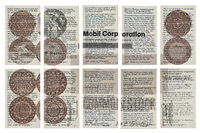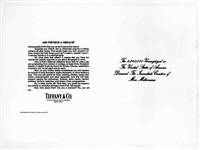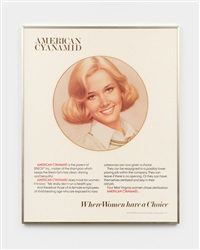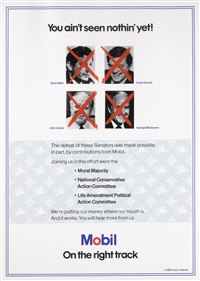Hans Haacke
(American/German, born 1936)
Biography

Hans Haacke
Upstairs At Mobil: Musings of a Shareholder, 1982
Sale Date: March 16, 2024
Auction Closed

Hans Haacke
Upstairs at Mobil: Musings of a Shareholder, 1982
Sale Date: November 15, 2023
Auction Closed

Hans Haacke
Upstairs at Mobil: Musings of a Shareholder, 1982
Sale Date: April 19, 2023
Auction Closed
.jpg)
.jpg)




-sind-das-volk—we-(all)-are-the-people.jpg)


.jpg)





.jpg)



.jpg)

